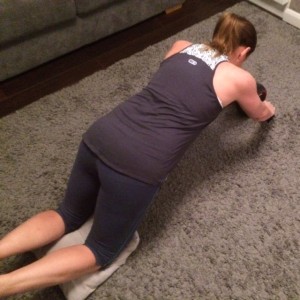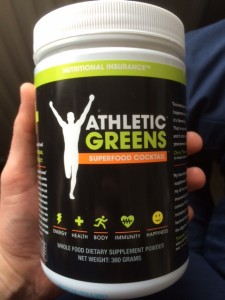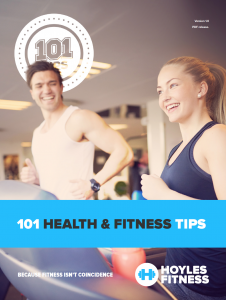Progress Not Perfection – Vital for Behaviour Change
When improving your health, always look to achieve progress not perfection.
What are your expectations of yourself?
Do you assume you’ll radically change everything about yourself overnight because you’ve decided you’re overweight? Will all of those habits built up over 20, 30, 40 or more years go away because you stood on the scales and didn’t like what you saw?
They won’t. At least for the long term, anyway.
You can change behaviours, but strive for progress not perfection.
If you are really overweight (I’m thinking 20lbs+ overweight), it won’t be because of one simple trigger. It’ll be a multi-faceted problem, encompassing a few different issues. You can never attribute everything health related to one cause.
Weight gain is never just as simple as “I eat too much”. Eating too much opens up a whole load more questions…. Why do you eat too much? Is it because of your poor shopping/cooking habits? Is it social pressure? Do you not have time to eat well?
As a personal trainer, it’s my job to help identify the real causes of weight gain or lack of fitness – I ask questions about habits, routines and beliefs. They are all clues to the multi-faceted puzzle that is weight gain. When you understand the reasons why someone is unhealthy, you can start to put them right.
Examples could include…
- Eating issues – wrong foods, poor quality, wrong times etc.
- Exercise issues – not enough, not the right type.
- Sleep issues – not enough, or poor quality.
- Stress issues – too high, no downtime.
- Illness issues – frequent, severe and often unsure as to the cause.
- Social issues – peer group not supportive, all unhealthy themselves etc.
What has this got to do with progress, not perfection?
There are some people who can make a snap decision to change and stick to it for life. Most of us can’t make drastic lifestyle changes quickly and keep them up for ever.
I have a client who decided to quit smoking – he threw his remaining tobacco packets in the bin and didn’t smoke again. It wasn’t easy, but he did it. He’s a rare exception though – most people won’t have the level of willpower needed to sustain a change so large. I wouldn’t, that’s for sure.
The point of this progress, not perfection message is to show you that numerous studies have shown that the key to successful behaviour change is to make regular, significant progress rather than try to change too many things at once. Just like when you take too much on at work, you become overwhelmed and end up deep in stress and possibly failing to get anything done.
You won’t undo decades of poor eating habits and a lack of exercise in a weekend, so start small. Always aim for progress, not perfection. Take small but regular steps in the right direction. Make new behaviours a habit before you move on to the next one.
The coaching model at Precision Nutrition, the worlds’ most successful online nutrition coaching platform works using this strategy. They ask their clients to adopt a single new behaviour every two weeks, such as ‘only eat until you are 80% full’.
The programme lasts for 12 months and lots of people have said the pace of learning and change is too slow, but you can’t argue with results and theirs are some of the best. They are also long-lasting too, which is something most other programmes can’t boast.
Their coaching approach is based upon the behaviour change psychology book, Switch: How to change things when change is hard. It’s a fantastic book and one that is useful for anyone undergoing significant life changes such as losing weight, quitting smoking, changing jobs, moving towns etc.
Back to the message; always focus on progress, not perfection. Adopt a new healthy behaviour. Stick with it until it becomes a habit, then improve another behaviour. In time you’ll have made dramatic, long-lasting improvements to your health and wellbeing.
Not sure how to do it? Simple – take the 5 key areas to health…
- Exercise
- Supplementation
- Stress
- Sleep/Recovery
- Diet
Look to improve each one with small, progressive steps. Once you have developed the habits in yourself, move on to the next one. You aren’t expected to be perfect at the start, but you are expected to be consistent.
I’ve outlined the approach below…
Start with regular exercise.
I personally believe it’s important to start with exercise. Why? Simple; Regular, progressive exercise will improve your fitness levels and increase your energy. The knock on effects will translate throughout your life, so start with a positive behaviour change.
Take something you enjoy, can commit to and is accessible. Don’t promise yourself 5 gym visits per week. Start with a couple or do a bodyweight workout at home twice per week. Maybe join a local bootcamp, a football team or dance class – whatever you enjoy and would be willing to do a couple of times per week.
After a couple of weeks of regular gym visits, walking, 5 a side, dancing or whatever you want to do, start to add in daily supplements. My suggestion is Athletic Greens. It’s a 5-in-1 supplement, meaning in one drink you have all of the supplementation you have in one go. It’s a daily drink, so regular repetition will see you building the habit quickly.
The purpose of drinking the Athletic Greens is to ensure you are getting all of the vitamins and minerals you need, regardless of your diet. It’s also a way to support your digestion because Athletic Greens contains a pro-biotic to help improve your gut health and digestion.
At this point, you’ve added to your life rather than taken anything from it. From a behaviour change perspective, it’s easier to add to your life rather than take things from it. Loss, or the removal of things seems to be hardwired into our brains as ‘bad’. In the case of diet, this is especially so. For this reason, I suggest leave changing your diet to later in the process.
When you have an exercise and supplement habit in place, look at reducing stress levels and improving sleep quality.
Stress is often a trigger for disruptive eating patterns and it affects quality of sleep, which in turn affects other aspects of our health – we have less energy, less willpower, crave bad foods, terrible sleep quality and suffer from a lack of motivation. Poor sleep also reduces our ability to recover from illness and injury.
You’ll need a consistent bed time routine…
- If you have dimmer switches, dim the lights in your house for an hour or two before bed – it stimulates the release of sleep-inducing chemicals.
- Don’t drink caffeine or eat a high-sugar food within a couple of hours of bed time.
- Write a to-do list before you go to bed – it helps clear your mind.
- Where possible, stick to a consistent bed time. Ideally around 10-10.30pm.
- Keep your bedroom as dark as possible – light has been proven to affect sleep quality.
- Finally, take a ZMA before bed to promote deep, restful sleep.
There are other sleep tips, but I’ll save those for another article.
To help combat stress, look at work patterns – are you doing too much? Is it for other people or yourself? Are you giving yourself enough breaks? Are you to blame – is your time management up to scratch? Are you ever putting yourself first?
We have a tendency as humans to assume our current situation is hopeless and that we are too busy. Nonsense.
I’ve learnt from plenty of successful people over the years that you need to give back to yourself; to recharge your batteries, otherwise you’ll never be able to look, feel and perform at your best. This will see everything else in your life suffer.
I personally think exercise and nature are the two best stress relievers. Either going to the gym and physically exerting myself, or going for a walk in the countryside really help me.
I don’t believe in alcohol being a stress reliever and that’s not the personal trainer in me talking – I’ve seen plenty of depressed drunk people to know the answer to problems rarely lie at the bottom of a bottle. Making a plan to improve your circumstances are far more useful than downing a few pints. I’m not anti-alcohol, far from it, but I’m anti-alcohol when it comes to stress relief.
There are other habits you can adopt – meditation seems to be seeing a huge resurgence in popularity. I’ve even seen adult colouring books that a few people I know say help with stress relief. It’s not my idea of stress relief, but it’s a case of horses for courses I suppose!
To recap, so far we’ve introduced…
- An exercise habit. Improve your fitness and energy levels.
- An all-in-one supplement.
- Add missing vitamins and minerals.
- Improved sleep. Measures to combat stress.
Finally, I suggest you look at improving your diet.
Your diet is arguably the most important factor when it comes to weight loss, so why is it last in the list?
Simple – it’s the factor that requires the most significant change in the person who wants to lose weight. It’s also the area most vulnerable to sabotage when you have a tough day. How often have you heard people say they’ve had a bad day so reach straight for an ice cream tub?
Millions. It happens every day.
By putting the other four steps in place, I’m hoping you’ll have improved both your physical and mental health enough to cope with the bad days without completely sabotaging your behaviour change progress.
You’ll also be noticing the positive changes that come with the weight loss and improved exercise and therefore less willing to ruin your progress.
Simple Diet Tips
I’ve written about it plenty of times before, but I like a carbohydrate-cycling approach with plenty of lean protein and vegetables. This approach is flexible enough to allow you cheat days, meaning you can lose weight whilst still enjoying good food.
Carbohydrate cycling means you eat more good quality carbohydrates on days when you are active and lower your carbohydrate intake on days when you are more sedentary.
Start simply – cut your portions of carbohydrates (rice, potatoes, pasta, bread) in half and double your vegetable intake. Drink upwards of 2 litres of water per days. At the start, remember progress, not perfection. At the start you don’t need to get too involved with the details, just understand the basics.
Keep this up for a fortnight and see how your body responds. As ever, remember progress, not perfection.
So the five key behaviours to improve are…
- Exercise
- Supplementation
- Stress
- Sleep/Recovery
- Diet
Take them in this order. Improve them one by one, using some of the tips outlined above. Don’t be hard on yourself and keep in the forefront of your mind, this is about progress, not perfection. You aren’t going to lead the life of an athlete overnight, so don’t expect to.
When you have a behaviour in place, move on to the next one. As soon as you have made an improvement in all five, go back to the start and look to improve some of them slightly more. Could you get an extra training session in your week? Maybe you could start meditating? Could you aim for an extra 30 mins in bed? Could you eat more vegetables? Could you cut out a little more chocolate?
Be dogged and determined, keep aiming for progress, not perfection and you’ll make dramatic, long-lasting improvements in your health.
By the way, if you subscribe to the Hoyles Fitness mailing list you’ll receive a free eBook containing 101 Health and Fitness Tips, plus offers and news exclusive to Hoyles Fitness subscribers. Click the image below to download…





One thought on “Progress Not Perfection – Vital for Behaviour Change”